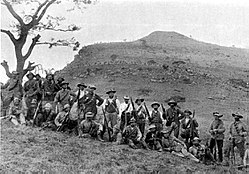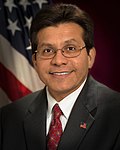Command responsibility
Command Responsibility is an idea that Military Officers are responsible for making sure that the soldiers under their command do not commit war crimes, and if they do, make sure that the soldiers involved are punished. It also suggests, and is often claimed as an excuse when soldiers commit war crimes due to being ordered to do so, and that the officers in that case bear the responsibility, not the individual soldiers carrying out the illegal orders. This excuse is nowadays considered dubious and frequently ridiculed as the "Nuremberg defence", as many of the Nazis in the Nuremberg trials claimed that while they did in fact commit war crimes, they had an oath to Hitler and could not refuse to obey it, no matter the consequences. The command responsibility argument has been invoked since with varying success, but under modern international humanitarian law, command to commit an illegal act, such as crimes against humanity, is not an excuse unless there was fear of reprisals, for example the real threat of the person ordered being killed if he refused to carry them out.
Command Responsibility Media
Command responsibility: the war criminals of the world are tried, judged, and sentenced by the International Criminal Court at The Hague, Netherlands.
Nazi Germany (1933–1945) created the Volkssturm national militia to defend Germany from the Red Army in the last months of the Second World War (1939–1945) in Europe.
Irregular soldiers: Boer militias waged guerrilla warfare against the British Army in the Second Boer War (1899–1902) in South Africa.
Civilian superior responsibility: In violation of the Geneva Conventions (1949), the U.S. Attorney General, Alberto Gonzáles (in office 2005–2007), voided U.S. recognition of the rights of habeas corpus and POW status for captured Al Qaeda fighters to facilitate prosecution of the Global War on Terror.
Manfred Nowak was the U.N. Special Rapporteur on torture from 2004 until 2010.
References
- Guilty Associations: Joint Criminal Enterprise, Command Responsibility, and the Development of International Criminal Law HTML version by Allison Marston Danner and Jenny S. Martinez, September 15, 2004





